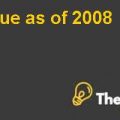
Pacific Grove Spice Company
Company Background:
Pacific was opened in 1980 as a small specialty grocer on the Monterey Peninsula of California. In the beginning, the company used to sell a selection of foods, coffees, teas, and spices. The store expanded its offering of spices to support a wider range of international foods due to the interest of one of the founder Judith Findra who had an interest in the Asian and Indian Cuisine. In the next decade, the company became a place in Central California where all types of spices were available. The company grew in a decade and made its reputation, sales in over 50 states with 90% of its sale to high-end grocery stores.
Debra Peterson was made the CEO of the company in 2006 and due to her the sales and the profit of the company increased rapidly.
Current Performance:
The sales revenue of the company was $81 million in 2011 with the growth of 19%. The profit earned by the company in 2011 was $2.374 million. The finances are provided by the large regional bank through the short term notes payable, which are backed by the company’s account receivable and the long term debt is supported by the other assets of the company.
However, the bank is not comfortable with the total amount of interest bearing debt, which was 62% at the end of 2011, % of the total assets of the company and 216% of owner’s equity. The equity multiplier of the company is 3.47 times, and the times interest-earned is only 2.15 times.
Problem Statement:
The bank that provides company with the required finance is concerned about the total amount of interest bearing debt on the balance sheet of the company and has asked the company to provide a plan to reduce it. Furthermore, the companyis also considering the three opportunities:
1) Sponsoring a cable cooking show
2) Selling new common stock
3) Acquisition of High Country Seasonings.
The company will have to decide which opportunities to go for and how to finance the deals.
Compliance with the Banking Requirements:
The bank has told the company that it wants an action plan to reduce the company’s interest-bearing debt to less than 55% of total assets and the equity multiplier by to less than 2.7 times by June 30, 2012. If the requirements of the bank are not met, then the bank would refuse to extend any additional credit to Pacific, forcing the company to find the new source of funding which at the time is very difficult to obtain.
The analysis of the forecasted financial statements of the company shows that the company would be unable to meet the required ratios by the bank and reduce the debt to asset ratio to 55% in 2012. The debt to asset ratio of the company in 2012 will be 60.86%, 59.34% in 2013, 57.42% in 2014 and 55% in 2015. The company will only meet the expectations of the bank in 2015.
The equity multiplier of the company with the projected results will also not meet the expectations of the bank and the multiplier in 2012 will be 3.30 times, which is unacceptable for the bank. The equity multiplier of the company will be 3.15 times in 2013, 2.97 times in 2014 and 2.77 times in 2015, which shows that the company will only met the expectations of the bank in 2015.
The financial results of the company in the near future show that the bank will refuse to extend any additional credit to the company and company will have to find a new source of financing..........................
This is just a sample partial case solution. Please place the order on the website to order your own originally done case solution.












